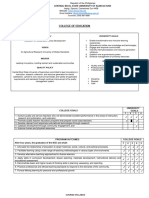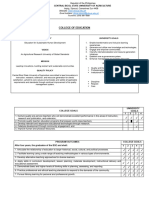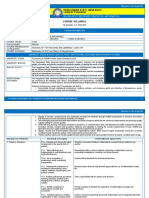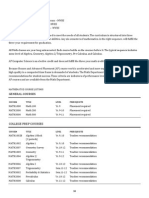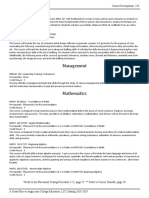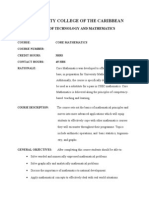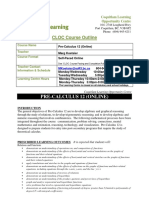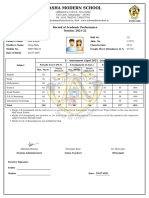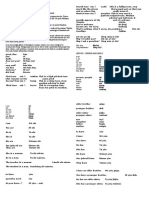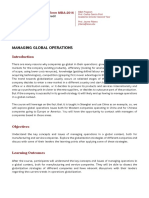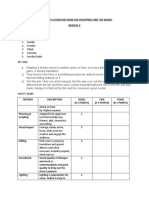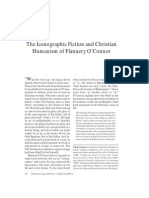0% found this document useful (0 votes)
206 views2 pagesMath Tech for Future Educators
This document provides information about a course on technology for teaching and learning mathematics. The course focuses on applying, designing, producing, using, and evaluating information and communication technology materials to support constructivist pedagogies for 21st century learners. A major requirement is an ICT-integrated project-based learning plan aligned with the K-12 curriculum. The course will be delivered remotely through a combination of synchronous online classes and asynchronous work. It provides basic information about the course code, title, credit units, schedule, instructor, goals, learning outcomes, and required materials.
Uploaded by
Eldimar BacsalCopyright
© © All Rights Reserved
We take content rights seriously. If you suspect this is your content, claim it here.
Available Formats
Download as DOCX, PDF, TXT or read online on Scribd
0% found this document useful (0 votes)
206 views2 pagesMath Tech for Future Educators
This document provides information about a course on technology for teaching and learning mathematics. The course focuses on applying, designing, producing, using, and evaluating information and communication technology materials to support constructivist pedagogies for 21st century learners. A major requirement is an ICT-integrated project-based learning plan aligned with the K-12 curriculum. The course will be delivered remotely through a combination of synchronous online classes and asynchronous work. It provides basic information about the course code, title, credit units, schedule, instructor, goals, learning outcomes, and required materials.
Uploaded by
Eldimar BacsalCopyright
© © All Rights Reserved
We take content rights seriously. If you suspect this is your content, claim it here.
Available Formats
Download as DOCX, PDF, TXT or read online on Scribd
/ 2

